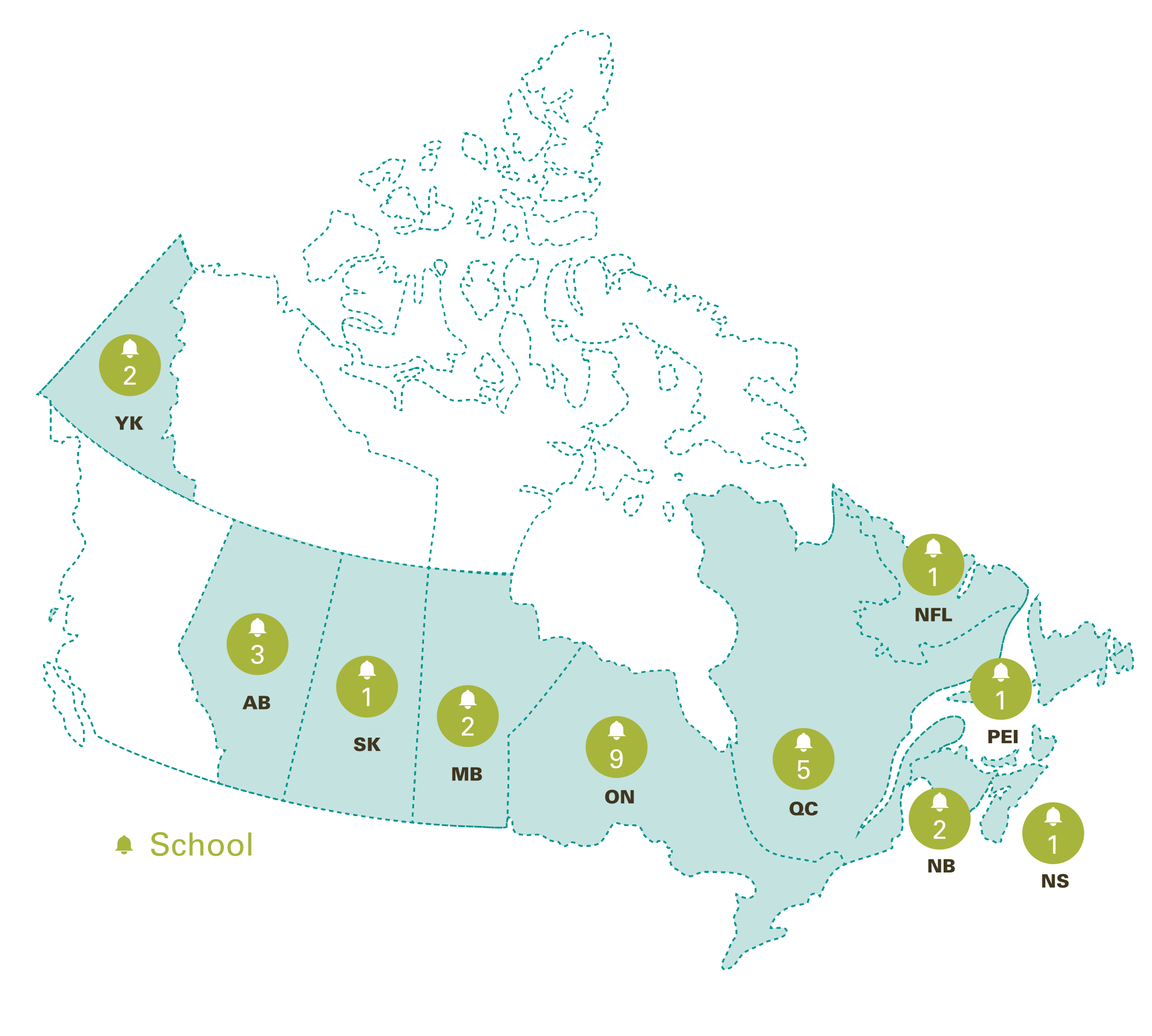
These grants are intended to support schools who are just getting started on their farm or local food to school journey, or smaller projects that can be completed within one school year. Regardless of where a school is at, the grants are intended to help improve school food environments by increasing access to healthy, local and culturally appropriate foods in schools and/or improve opportunities for hands-on learning through food and food systems. Celebrating the diversity of school communities across the country, how the funds can be spent is flexible and depends on each school’s unique goals and needs. Details about how the grants have been awarded can be found at the bottom of this post.
The new grantee schools are set to actively engage students in local food systems through a variety of activities. On the cultivation side, schools are exploring the establishment of hydroponic and indoor growing systems, gardens, and the cultivation of edible Indigenous plants. In terms of food service, we are glad these grants will support the purchase of kitchen equipment and small appliances that will enhance the schools’ capacity for more scratch cooking, safe food service and storage, and waste reduction while also facilitating educational cooking activities for students. Many schools have also shared with us that they are excited to incorporate access to diverse cultural foods, celebrate Indigenous land-based learning, and much more into their programs!
Beyond the school-based program activities, grant-recipient schools will also have opportunitites to connect, share, and learn from each other, facilitated by Farm to Cafeteria Canada and our regional partners. This collaborative approach ensures a broader impact and a collective effort toward fostering sustainable and inclusive food practices in schools across the country.
One trend we’ve noticed with this grant cycle, is a strong interest in hydroponics systems and indoor growing. To help grant recipients, and others who are interested in this topic, we’ll be hosting a webinar series that covers both these topics in partnership with Farm to School BC. You can learn more and register here.

Learn more about the grants and check out stories from past grant recipients here.
In response to feedback from schools, this grant stream was designed to be flexible so that schools could use the funds for a range of equipment and activities that suit their individual goals and needs for transforming their school food environment. The grant stream was also designed to have a simplified application process and to provide funding amounts suited for schools just getting started or looking to work on small-scale projects. We received far more applications than we had grants to award. To help reduce bias and award these grants equitably across the country, we used the following process:
This process was a new one for our team and we felt it was successful in helping to limit selection bias. It was also a good learning experience for our team and one we will look to apply and improve upon it in future grant cycles.
The 2023 Dig In! Seed Grants are made possible thanks to the generous support of The Schad Foundation.